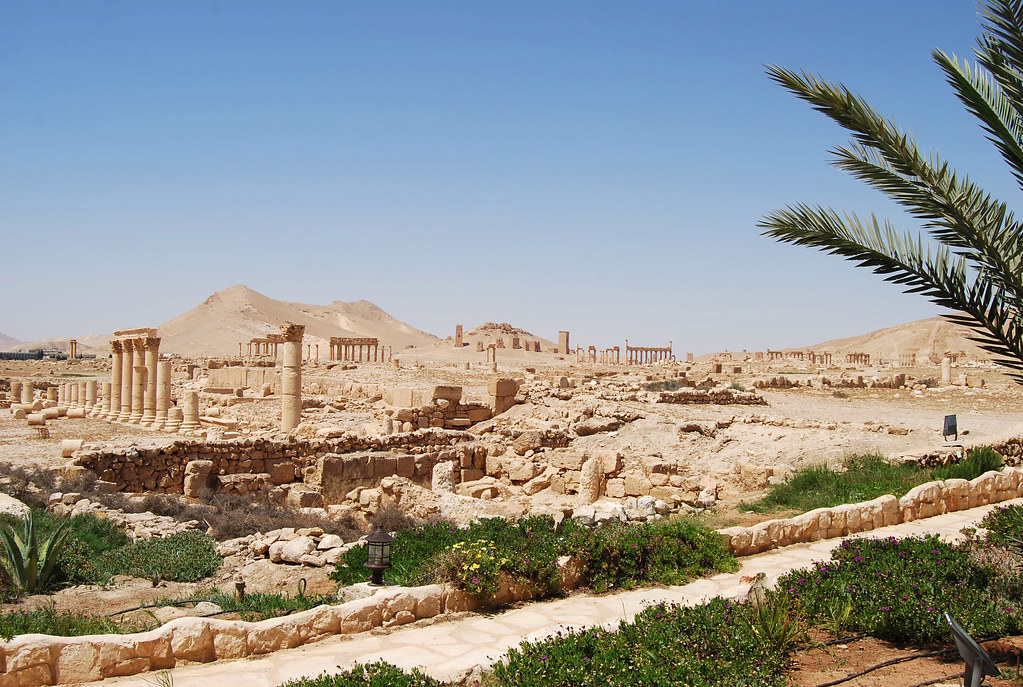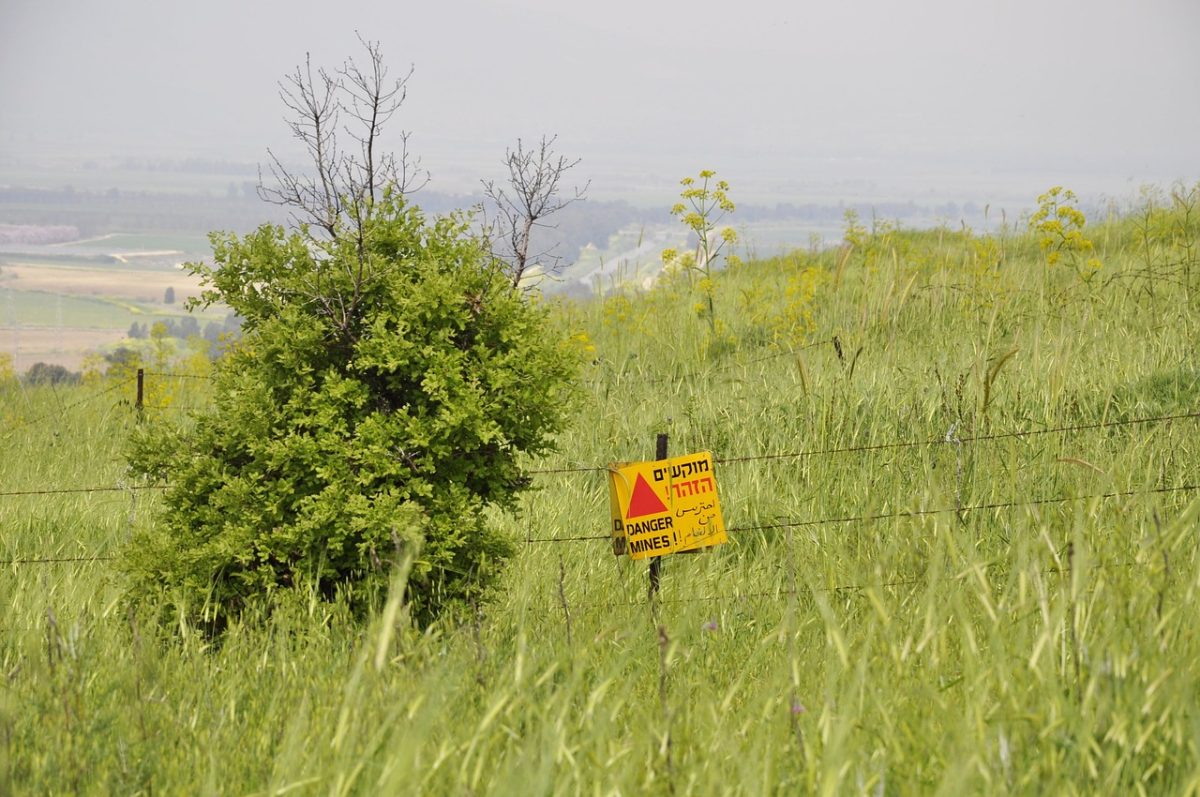Washington, D.C. – In a State Department press briefing, spokesperson Matthew Miller provided updates on the Biden administration’s evolving approach to Syria. The briefing emphasized the United States’ support for a Syrian-led political transition while grappling with the intricacies of regional geopolitics and the legacy of over a decade of civil war. Secretary of State Antony Blinken has been actively engaging with Middle Eastern foreign ministers, including officials from Jordan, Turkey, and other regional players, to address the unfolding situation and assess international perspectives.
A Syrian-Led Transition: Ambitious Goals, Cautious Optimism
The United States reiterated its stance on fostering a political transition to a new Syrian government that upholds minority rights, respects humanitarian principles, and eliminates remaining chemical weapon stockpiles. Miller emphasized the importance of a Syrian-led process, free from foreign interference, as the cornerstone of sustainable governance. However, he acknowledged the challenges posed by a fractured political landscape, ongoing violence, and competing regional interests.
Hay’at Tahrir al-Sham (HTS), a designated terrorist organization, has taken control of certain regions and reportedly installed an interim leader. While HTS’s rhetoric includes commitments to governance reforms and inclusivity, the U.S. remains cautious. “We will judge them by their actions,” Miller stated, pointing to the group’s history of militant activity and the limitations this imposes on U.S. engagement.
The U.S. has made it clear that any new Syrian government must emerge from an inclusive process that respects the rights of all citizens, particularly minorities, and prevents Syria from becoming a base for terrorist operations.
Expanding Visa Ban Authorities to Target Human Rights Violations
The briefing highlighted the U.S. government’s efforts to expand visa ban authorities targeting individuals involved in wrongful detentions and human rights abuses in Syria. Matthew Miller explained that the expanded measures aim to refine existing tools, allowing the U.S. to more effectively hold accountable those responsible for actions such as torture, arbitrary detention, and the suppression of political opposition.
These expanded authorities build on the existing sanctions framework but focus on directly restricting entry for individuals complicit in serious violations. Miller emphasized that the goal is not just punitive but also deterrent, sending a clear message that human rights violations will face tangible consequences. “These measures help us signal that those who commit such violations will be held accountable, both diplomatically and practically,” Miller said.

Recognition of Governments vs. States: A Delicate Balance
Miller offered insight into the nuanced U.S. policy on recognizing states versus governments, a distinction that plays a significant role in Washington’s approach to Syria. While the United States continues to recognize Syria as a sovereign state, it does not extend formal recognition to the Assad regime, which retains de facto control over parts of the country, nor to Hay’at Tahrir al-Sham (HTS), which has consolidated power in certain regions. “Recognition hinges on adherence to key principles that benefit the Syrian people,” Miller stated, underscoring the importance of a transparent, inclusive process that upholds international norms and respects human rights.
The challenges inherent in this policy are significant. By not recognizing either the Assad regime or HTS, the U.S. avoids lending legitimacy to groups or individuals with a history of human rights abuses or ties to terrorism. However, this position also complicates diplomatic efforts and limits the United States’ ability to engage directly with key actors controlling significant portions of Syria. Miller acknowledged these complexities, noting that any potential recognition would require careful evaluation of how a governing entity meets the needs of the Syrian population while adhering to international norms.
The distinction between recognizing states and recognizing governments has long been a hallmark of U.S. foreign policy, rooted in the principle that statehood is a matter of sovereignty, whereas government recognition is contingent upon legitimacy and governance standards. “Our approach ensures that recognition is tied to the principles we advocate for globally—transparency, inclusivity, and respect for human rights,” Miller said.
Critics have questioned whether the U.S. policy is sufficiently adaptable to the realities on the ground in Syria, where years of conflict have fractured the state and created power vacuums filled by a patchwork of groups. Some argue that withholding recognition from any governing entity risks prolonging instability by leaving key stakeholders without formal engagement. Miller countered this by reiterating the administration’s belief in a Syrian-led process that involves broad-based participation and adherence to principles that safeguard the rights of all Syrians.
Austin Tice: A Priority in Syria PolicyWashington, D.C. – The Biden administration has reiterated its support for a Syrian-led political transition amid complex regional geopolitics and a decade of civil war.
The safe return of journalist Austin Tice, who has been missing and is believed to be alive and detained in Syria since 2012, remains a top priority for the U.S. government. A former U.S. Marine turned freelance journalist, Tice was covering the Syrian conflict when he disappeared in a contested area near Damascus. His case has since become a focal point of U.S. efforts to address the humanitarian consequences of the Syrian war, underscoring the complexities of operating in a region fractured by violence and competing interests.
Matthew Miller reaffirmed that securing Tice’s release is a cornerstone of U.S. policy in Syria. “We have no higher priority than the safe return of Austin Tice,” he said, emphasizing that this mission has been a constant across successive administrations. U.S. officials have leveraged every available communication channel to engage relevant actors in the region, ensuring that the urgency of Tice’s case remains front and center in discussions.
“It is essential that any resolution to Syria’s political future includes accountability for wrongful detentions and ensures the safety of journalists and civilians,” he said. As part of its messaging, the U.S. has made clear to regional actors that Tice’s release would represent a significant step toward rebuilding trust and advancing stability in the region.

Israeli Airstrikes and the Golan Heights: A Tense Dynamic
Recent Israeli airstrikes targeting military sites in Syria, along with the disputed status of the Golan Heights, have further complicated U.S. policy in the region. While reaffirming U.S. recognition of the Golan Heights as Israeli territory, State Department spokesperson Matthew Miller avoided commenting on the specifics of Israel’s military actions. He stressed the importance of consulting with Israeli officials to understand their objectives before issuing public statements or condemnations.
Critics have questioned the U.S. silence on strikes that reportedly violate Syrian sovereignty and target military infrastructure. Miller, however, emphasized that any response must account for broader regional stability and Israel’s security concerns. He pointed to Syria’s instability and the risks posed by surplus weaponry as significant challenges complicating the U.S. approach.
The Golan Heights remains a contentious issue internationally, with many viewing it as Syrian territory under Israeli occupation despite U.S. recognition of Israeli sovereignty. Miller acknowledged these sensitivities but reiterated that the U.S. focus is on ensuring actions contribute to stability and prevent escalation in an already volatile region.
Looking Ahead: Balancing Aspirations with Realities
The Biden administration’s strategy for Syria underscores a delicate balance: advocating for a Syrian-led process while coordinating with international and regional stakeholders. This approach faces significant hurdles, including the involvement of multiple actors with conflicting interests, the fractured nature of Syrian governance, and the legacy of humanitarian atrocities.
By prioritizing minority rights, counter-terrorism, and the elimination of chemical weapons, the U.S. aims to shape a path toward a stable and inclusive future for Syria. However, achieving these ambitious goals will require sustained diplomatic efforts, regional alignment, and a clear commitment to the principles outlined by the U.S. and its allies.





